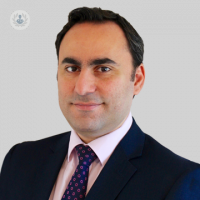Recognising the symptoms of adrenal gland disorders and getting them treated
Written in association with:The adrenal glands, small organs located on top of each kidney, produce essential hormones that regulate metabolism, blood pressure, immune response, and stress management. Adrenal gland disorders occur when these glands produce too much or too little of certain hormones, leading to a variety of health issues. Understanding the symptoms and treatment options can help manage these conditions effectively.

What are adrenal gland disorders?
Adrenal gland disorders encompass several conditions that affect the production of hormones such as cortisol, aldosterone, adrenaline, and androgens. Common disorders include:
- Cushing’s syndrome: Caused by excessive cortisol production.
- Addison’s disease: Resulting from insufficient cortisol or aldosterone production.
- Adrenal tumours: These may be benign or cancerous, potentially overproducing hormones.
- Congenital adrenal hyperplasia (CAH): A genetic disorder affecting hormone production.
- Pheochromocytoma: A rare tumour that overproduces adrenaline and noradrenaline.
Recognising the symptoms
Symptoms vary depending on the specific disorder but may include:
- Cushing’s syndrome:
- Weight gain, especially in the face, abdomen, and upper back.
- Thinning skin and easy bruising.
- Muscle weakness and fatigue.
- High blood pressure and blood sugar levels.
- Addison’s disease:
- Chronic fatigue and muscle weakness.
- Unexplained weight loss.
- Low blood pressure and salt cravings.
- Darkening of the skin (hyperpigmentation).
- Adrenal tumours or pheochromocytoma:
- Persistent or episodic high blood pressure.
- Sweating, rapid heart rate, and palpitations.
- Headaches and unexplained anxiety.
- Congenital adrenal hyperplasia:
- Early signs of puberty or abnormal growth patterns in children.
- Infertility and menstrual irregularities in women.
- Hormonal imbalances in both sexes.
How are adrenal gland disorders diagnosed?
Diagnosis involves a combination of medical history, physical examination and specialised tests to evaluate adrenal function. These may include:
- Blood and urine tests: To measure hormone levels such as cortisol, aldosterone, and adrenaline.
- Imaging studies: CT or MRI scans to detect adrenal tumours or abnormalities.
- ACTH stimulation test: To assess adrenal response to pituitary signals.
- Genetic testing: For conditions like congenital adrenal hyperplasia.
Treatment options
The treatment for adrenal gland disorders depends on the specific condition and its severity:
- Medication:
- Hormone replacement therapy for Addison’s disease.
- Medications to suppress excess hormone production in conditions like Cushing’s syndrome.
- Surgery:
- Removal of adrenal tumours, particularly in cases of pheochromocytoma or cancer.
- Adrenalectomy (removal of one or both glands) in severe cases.
- Lifestyle changes:
- Managing stress and maintaining a healthy diet to support overall adrenal health.
- Monitoring and follow-up:
- Regular assessments to ensure treatment effectiveness and adjust therapy as needed.
When to seek medical advice
Persistent fatigue, unexplained weight changes, or symptoms like high blood pressure and excessive sweating may indicate an adrenal disorder. Early diagnosis and treatment are crucial to prevent complications and improve quality of life.
By consulting an endocrinologist, patients can receive personalised care and guidance to manage their condition effectively, ensuring better long-term health outcomes.


